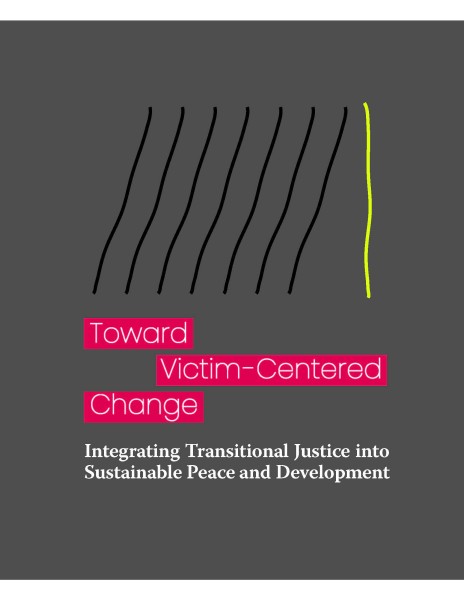We work side by side with victims to obtain acknowledgment and redress for massive human rights violations, hold those responsible to account, reform and build democratic institutions, and prevent the recurrence of violence or repression.
Toward Victim-Centered Change: Integrating Transitional Justice into Sustainable Peace and Development
International policymakers recognize that transitional justice is an important component of the 2030 Agenda for Sustainable Development, especially in countries affected by systemic violence, repression, and marginalization. Yet responses to massive human right violations often remain disconnected from development practice. This report of the Working Group on Transitional Justice and SDG16+ proposes a more strategic approach to integrating transitional justice into sustainable peace and development and highlights opportunities to forge greater links across the sectors.

International policymakers recognize that transitional justice is an important component of the 2030 Agenda for Sustainable Development, especially in countries affected by systemic violence, repression, and marginalization. Yet responses to massive human right violations often remain disconnected from development practice. This 2023 report of the Working Group on Transitional Justice and SDG16 therefore proposes a more strategic approach to integrating transitional justice into sustainable peace and development and highlights opportunities to forge greater links across the sectors.
Transitional justice can help achieve many of the Sustainable Development Goals, particularly those related to access to justice, rule of law, inclusion, prevention, and equality. In these areas, transitional justice can increase agency and trust as well as address structural drivers of violations. Stakeholders can further integrate transitional justice into development, for example, by providing social services, psychosocial support, and livelihood assistance within a reparative framework, and by incorporating truth commission recommendations and victims’ needs into development plans.
Bringing about such victim-centered change requires stakeholders to make a convincing case for the value of such an approach—drawing on evidence of impact and examples of the relationship between violations and structures. But it also requires them to offer specific, comprehensive, and coherent interventions that address problems such as violence and marginalization in their full complexity and scope, and to galvanize the support needed to implement those interventions.
To this end, the working group urges stakeholders to (1) strengthen collective action among victims’ groups and networks, civil society, and social and political movements; (2) incorporate transitional justice into responses at the local, national, regional, and global levels; and (3) adopt a long-term perspective on monitoring, operationalization, and impact.
The Working Group on Transitional Justice and SDG16+ is part of the Justice Action Coalition (JAC), an international policy platform that works to close the global justice gap. Convened by ICTJ, the working group brings together civil society, governments, regional actors, and international organizations to mobilize support for the 2023 Justice Appeal, which calls for the reestablishment of trust and the renewal of the social contract.